Related Research Articles

Torsten Nils Wiesel is a Swedish neurophysiologist. With David H. Hubel, he received the 1981 Nobel Prize in Physiology or Medicine, for their discoveries concerning information processing in the visual system; the prize was shared with Roger W. Sperry for his independent research on the cerebral hemispheres.

Herbert Leroy Needleman researched the neurodevelopmental damage caused by lead poisoning. He was a pediatrician, child psychiatrist, researcher and professor at the University of Pittsburgh, an elected member of the Institute of Medicine, and the founder of the Alliance to End Childhood Lead Poisoning. Dr. Needleman played a key role in securing some of the most significant environmental health protections achieved during the 20th century, which resulted in a fivefold reduction in the prevalence of lead poisoning among children in the United States by the early 1990s. Despite engendering strong resistance from lead-related industries, which made him the target of frequent attacks, Needleman persisted in campaigning to educate stakeholders, including parents and government panels, about the dangers of lead poisoning. Needleman has been credited with having played a key role in triggering environmental safety measures that have reduced average blood lead levels by an estimated 78 percent between 1976 and 1991. He died in Pittsburgh in 2017.
Lynn R. Goldman is the Dean of the Milken Institute School of Public Health at George Washington University. She is an American public health physician, a pediatrician and an epidemiologist.

Leon Eisenberg was an American child psychiatrist, social psychiatrist and medical educator who "transformed child psychiatry by advocating research into developmental problems".
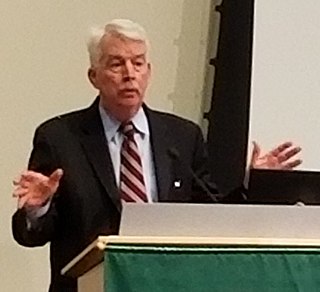
Philip John Landrigan, is an American epidemiologist and pediatrician. He has campaigned against substances in the environment that are harmful to children, such as lead and asbestos. He is also concerned with environmental pesticides.
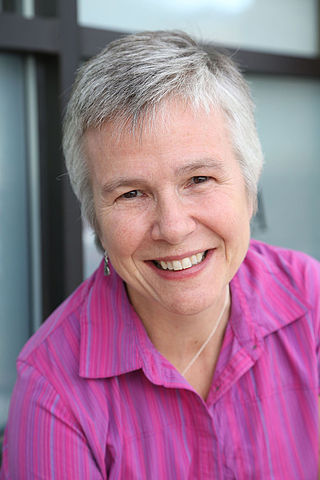
Sharon F. Terry is a health advocate in San Diego, California, United States. She co-founded PXE International when her children were diagnosed with pseudoxanthoma elasticum (PXE) in 1994. Her TEDMED talk from 2017 has been viewed more than a million times, and was the subject of the TED Radio Hour. In 2009, she was elected an Ashoka Fellow for her entrepreneurial work in engagement and the development of interventions for genetic conditions.

Agnes Binagwaho is a Rwandan Politician, pediatrician, co-founder and the former vice chancellor of the University of Global Health Equity (2017-2022). In 1996, she returned to Rwanda where she provided clinical care in the public sector as well as held many positions including the position of Permanent Secretary for the Ministry of Health of Rwanda from October 2008 until May 2011 and Minister of Health from May 2011 until July 2016. She has been a professor of global health delivery practice since 2016 and a professor of pediatrics since 2017 at the University of Global Health Equity. She has served the health sector in various high-level government positions. She resides in Kigali.
Early childhood is a critical period in a child's life that includes ages from conception to five years old. Psychological stress is an inevitable part of life. Human beings can experience stress from an early age. Although stress is a factor for the average human being, it can be a positive or negative molding aspect in a young child's life.
Maria Iandolo New is a professor of Pediatrics, Genomics and Genetics at Icahn School of Medicine at Mount Sinai in New York City. She is an expert in congenital adrenal hyperplasia (CAH), a genetic condition affecting the adrenal gland that can affect sexual development.
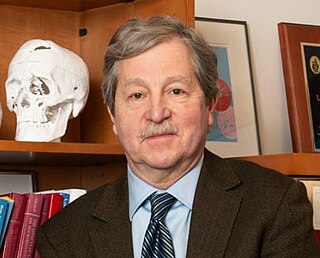
Charles A. Nelson III is an American neuroscientist and psychologist. His international projects include a long-standing project on institutionalized children in Romania, children growing up in a slum in Dhaka, Bangladesh, infants in Puerto Rico exposed to the Zika virus, and children growing up in challenging circumstances in Sao Paulo, Brazil. Dr. Nelson has also focused his research efforts on the development of memory and the ability to recognize facial expressions of emotion in infants and young children. Recently, Nelson was recognized for his on-going research with infants and children at high risk for developing autism spectrum disorder.

Nadine Burke Harris is a Canadian-American pediatrician who was the Surgeon General of California between 2019 and 2022; she is the first person appointed to that position. She is known for linking adverse childhood experiences and toxic stress with harmful effects to health later in life. Hailed as a pioneer in the treatment of toxic stress, she is an advisory council member for the Clinton Foundation's "Too Small to Fail" campaign, and the founder and former chief executive officer of the Center for Youth Wellness. Her work was also featured in Paul Tough's book How Children Succeed.
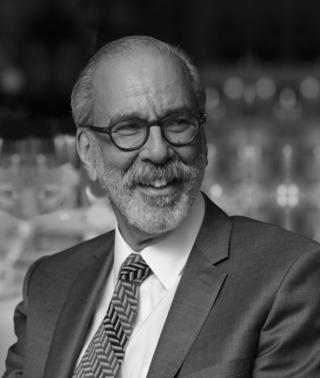
Michael Weitzman is an American pediatrician specializing in public health and policy. He is known for his research focusing on the social and environmental determinants of child health. He has published over 150 articles in medical and scientific journals on the damaging effects of second-hand smoke, lead exposure, and countless other determinants of children's health and behavior. From 1999-2005 he served as the executive director of the Center for Child Health Research, a national research institute created by the American Academy of Pediatrics.

Nicole Lyn Letourneau is a Canadian professor and researcher. She is a Research Chair in Parent and Child Mental Health at the University of Calgary. Formerly she held the Alberta Children's Hospital Chair and Norlien Foundation Chair in Parent-Infant Mental Health (2011–2021) and Canada Research Chair in Healthy Child Development (2007–2011). She currently serves as the director of the RESOLVE Alberta and principal investigator for the CHILD Studies Program at Alberta Children's Hospital Research Institute. She has written over 210 peer-reviewed publications; authored the books, Parenting and Child Development: Issues and Answers, What Kind of Parent Am I:Self-Surveys That Reveal The Impact of Toxic Stress Scientific Parenting: What Science reveals about Parental Impact, and has contributed more than 20 other books on parenting and childcare.
Marie Clare McCormick is an American pediatrician and Sumner and Esther Feldberg Professor of Maternal and Child Health in the Department of Social and Behavioral Sciences at Harvard T.H. Chan School of Public Health in Boston, Massachusetts. She also holds an appointment as professor of pediatrics in the Harvard Medical School. In addition, she is the senior associate for academic affairs in the department of neonatology at the Beth Israel Deaconess Medical Center. Her research primarily focused on epidemiology and health services, particularly in relation to infant mortality and the outcomes of very low birthweight (VLBW) and otherwise high-risk neonates.
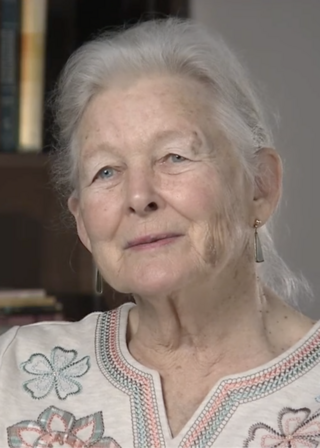
Susan Pardee Baker is a professor emeritus of health policy and management at the Johns Hopkins Bloomberg School of Public Health and a injury prevention expert. She served as the first director of the Johns Hopkins Center for Injury Research and Policy. She is also known for developing Injury Severity Scores.

Philip A. Pizzo is an American professor, physician, and scientist. He is the David and Susan Heckerman Professor of Microbiology and Immunology, Emeritus at Stanford University, and founding director of Stanford's Distinguished Careers Institute. He served as the 11th Dean of the Stanford University School of Medicine from 2001 to 2012. He spent over two decades at the National Institutes of Health, and has devoted much of his medical career to the diagnosis, management, prevention and treatment of children with cancer and AIDS. He has also focused on the future of higher education, specifically for individuals in mid- to late-life. In 2022, he enrolled as a rabbinical student at the Academy for Jewish Religion, California.

Amy Joy Houtrow is an American pediatrician and physical medicine and rehabilitation physician. She is the Endowed Professor in the Department of Physical Medicine and Rehabilitation at the University of Pittsburgh School of Medicine.
Beatriz Luna is a developmental neuroscientist known for conducting neuroimaging research on the development of cognitive control, reward, and reinforcement learning from early childhood to adolescence.

Claire Brindis, DrPH, is a Distinguished Emerita Professor of Pediatrics and Health Policy, Department of Pediatrics and Department of Obstetrics, Gynecology and Reproductive Health Sciences and Emerita Director of the Philip R. Lee Institute for Health Policy Studies at the University of California, San Francisco (UCSF). Her research considers women's, adolescent and child health, as well as adolescent pregnancy prevention strategies. She was elected a member of the Institute of Medicine in 2010.
David Rowitch, FMedSci, FRS is an American physician-scientist known for his contributions to developmental glial biology and treatment of white matter diseases. He heads the Department of Paediatrics at the University of Cambridge and is an adjunct professor of pediatrics at the University of California San Francisco (UCSF).
References
- ↑ Keener, Amanda B. (25 January 2021). "Unseen scars of childhood trauma". Knowable Magazine. doi: 10.1146/knowable-012521-1 . Retrieved 10 December 2021.
- ↑ "Jack P. Shonkoff, M.D. - Center Director". Center on the Developing Child at Harvard University. Retrieved 2019-08-09.
- ↑ "Jack P. Shonkoff". Jack P. Shonkoff. Retrieved 2019-08-09.
- ↑ "Jack Shonkoff". harvard.edu. Retrieved May 1, 2017.
- ↑ "From Neurons to Neighborhoods: The Science of Early Childhood Development". www8.nationalacademies.org. Retrieved 2019-08-16.
- ↑ "Past Reports". sites.nationalacademies.org. Retrieved 2019-08-16.
- ↑ Shonkoff, Jack P.; Phillips, Deborah A.; Development, National Research Council (US) and Institute of Medicine (US) Committee on Integrating the Science of Early Childhood (2000). Biographical Sketches. National Academies Press (US).
- ↑ Shonkoff, Jack P. (2006–2011). "A promising opportunity for developmental and behavioral pediatrics at the interface of neuroscience, psychology, and social policy: remarks on receiving the 2005 C. Anderson Aldrich Award". Pediatrics. 118 (5): 2187–2191. doi:10.1542/peds.2006-1728. ISSN 1098-4275. PMID 17079593. S2CID 40674502.
- ↑ "SRCD Senior Distinguished Contributions Awards History". Society for Research in Child Development. Archived from the original on 2019-03-30. Retrieved 2019-08-16.
- ↑ "The LEGO Foundation Annual LEGO Idea Conference Unlocks "Power of Parenting", Convenes Top Experts in Child Development and Learning from Around the World". The LEGO Foundation. Retrieved 2019-08-16.